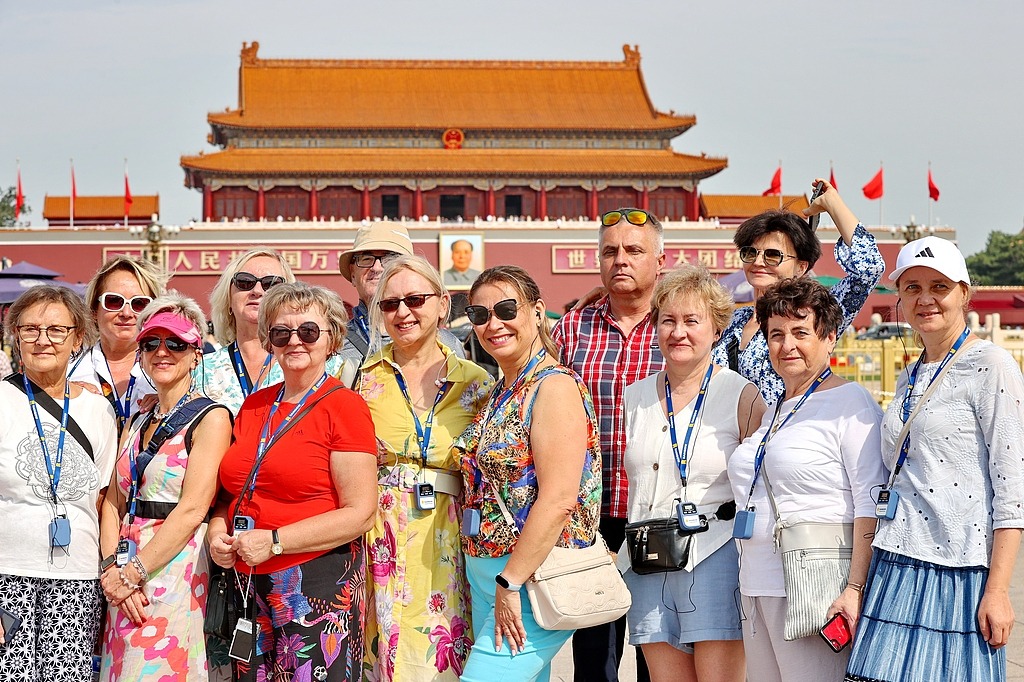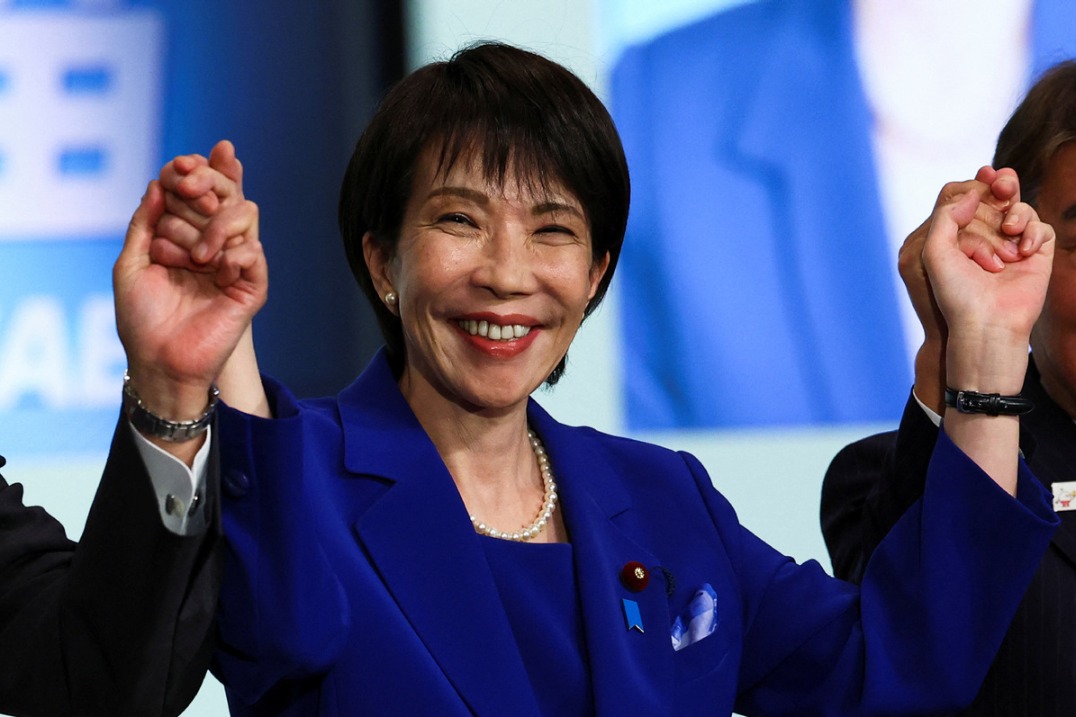On the cusp


Unlike the binary opposition Cold War thinking of the West, China is striving to build a community with a shared future
Amid the power shift between a rising East and a declining West, the United States has been trying to alleviate its mounting anxiety at the potential loss of its hegemony by attempting to provoke a new Cold War and shift the blame for its internal problems onto other countries. This persisting Cold War mentality is threatening world peace and development, and exacerbating division and confrontation worldwide.
The collective rise of emerging market countries and developing countries, represented by China, has upset the international balance of power, which is the most prominent change of our times. That change is stoking the hegemonic anxiety of the US.
While shifts in power are completely normal in international politics, the US, scarred by Cold War memories, demonizes and stigmatizes China's growth by underlining the ideological and social system differences between the US and China, which only lays bare its deep-seated anxiety about losing its hegemony.
In 2017, the Donald Trump administration labeled China as a "revisionist "and a "strategic competitor" of the US in its first National Security Strategy report and launched strategic competition with China. The Joe Biden administration keeps hyping up threats from China, which is said to be the only country capable of posing a "systemic challenge" to the US, and it has declared a full-spectrum strategic contest.
The transformation of the international order has intensified ideological disputes. Since the 2008 financial crisis, the liberal international order, dominated by the US after World War II, has been under threat. The collective rise of non-Western countries and the relative decline of the West have weakened the foundation of Western civilization and Western centrism.
To maintain the ideological foundation of the hegemonic order and curb the development of other civilizations, the US started to advocate for a "rules-based liberal international order", polarize the value differences between China and the West, and even criticize China's development model from an ideological perspective, aiming to seize dominance in the international order and obstruct China's growth by inciting ideological confrontation.
Technological revolution and industrial transformation is reshaping international politics. While technological progress itself does not necessarily intensify major-power competition, the US' narrow understanding of it has led to the resurgence of a technological monopoly culture.
Using technology issues as ideological tools, the US is suppressing China's technological development under the pretexts of human rights and democracy, and working with its allies with "shared values" to blockade China's high-tech sector. For example, a critical and emerging technologies working group has been established under the Quad, composed of the US, Japan, Australia and India, to ensure that technological standards are controlled by countries with "common interests and values".
Essentially, the US is using a fabricated "external enemy" to cover up the failures of its democracy and shift the blame for its internal political turmoil.
The Cold War mentality is regressive thinking from the past. China is committed to peaceful development and win-win cooperation.
Unlike some countries that draw lines based on ideology, China advocates the common values of all mankind, which transcend Western-centric and binary opposition thinking.
China embraces the diversity of civilizations. It has proposed the Global Civilization Initiative, which calls for mutual respect and inclusiveness among civilizations, social systems and development paths; and promotes exchanges and dialogues for peaceful coexistence and harmonious living to let cultural exchanges transcend estrangement, mutual learning transcend clashes, and coexistence transcend feelings of superiority.
China adheres to peaceful development and works to build a new-type international relations. China resolutely opposes all forms of hegemony and power politics, as well as the outdated belief that a strong country will inevitably seek hegemony. Peace is the everlasting wish of humanity and a value much cherished by the Chinese civilization.
China is on its way to modernization through peaceful development.
With a Cold War mentality that stresses absolute security, countries tend to safeguard their security at the expense of others. This idea is no longer compatible with today's increasingly complex security situation and does not contribute to global security governance.
To achieve universal and common security, China has proposed the Global Security Initiative, which goes beyond the traditional security concepts represented by the Cold War mentality and plays a leading role in world peace and development. The Global Security Initiative calls for staying committed to the vision of common, comprehensive, cooperative and sustainable security; upholding the principle of indivisible security; respecting the legitimate security concerns of all countries; resolving differences and disputes between countries through dialogue and consultation; avoiding double standards; and not neglecting or infringing on the security interests of other countries.
Since the end of the Cold War, Western countries have been using their global influence to promote their own values and development models, giving rise to individualism and egoism. Coupled with the widespread negative impacts of globalization, development across the world has become largely imbalanced.
By proposing the Global Development Initiative, China calls for building an open world economy, jointly carrying out high-quality Belt and Road cooperation, and promoting balanced development to create a favorable external environment for world peace and development.
Today's world is an indivisible community. Countries are increasingly interconnected and interdependent. The international community needs to work together to address various global issues. Rejecting the Cold War mentality, China advocates the concept of a community with a shared future for mankind, which can serve as the theoretical weapon to defeat the "new Cold War" and guide the healthy development of international relations.
On the one hand, China insists on equality among countries, regardless of their size, strength or wealth, respecting the right of all peoples to independently choose their development paths and upholding international fairness and justice. China opposes imposing one's will on others, interfering in other countries' internal affairs, and bullying the weak.
On the other hand, the international community should break free from the Cold War mentality and keep abreast of the trend of the times. New international relations should be established with the guide of the concept of a community with a shared future for mankind, replacing power politics with mutual respect, fairness, justice and win-win cooperation. Only then can we forge a new path for interactions between countries.
Wu Zhicheng is deputy director and professor of the Institute of International Strategy at the Party School of the Central Committee of the CPC(National Academy of Governance).Xu Xiaofang is a doctoral student at the same institute. The authors contributed this article to China Watch, a think tank powered by China Daily.
Contact the editor at editor@chinawatch.cn.


































